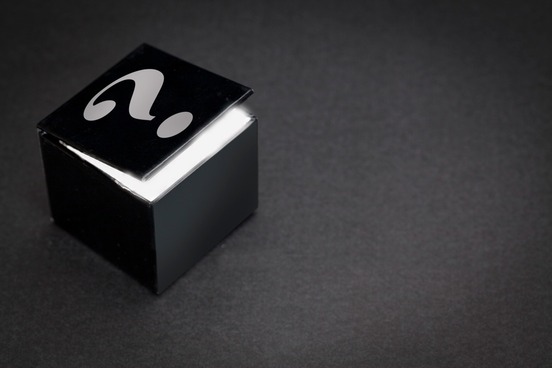
Anagram
Anagrams require a particular kind of skill, and they have for a long time. That is, anagrams are difficult and ancient. Or, to put it into an anagram, trim an id uncle after fan smartens cad again. The best anagrams make sense in both of their forms, though, so, ahem, we'll emphasize the "difficult" here.
The ancient Greeks and Romans made anagrams, and anagrams were popular throughout Medieval Europe. In the 16th and 17th centuries religious orders made anagrams as a kind of exercise, taking, for example, the angelical salutation "Ave Maria, gratia plena, Dominus tecum” (“Hail Mary, full of grace, the Lord is with thee”) and creating hundreds of variations, among them “Virgo serena, pia, munda et immaculata” (“Virgin serene, holy, pure, and immaculate”). Computers simplify the process immeasurably, which means we are, in fact, in a new golden age of anagrams.

Pangram
A pangram is a short sentence that contains all 26 letters of the English language, as in this most famous of them:
The quick brown fox jumps over the lazy dog.
Pangrams are much easier to create than anagrams, but, tragically, many of them go unnoticed by both their creators and those who encounter them in the wild. Lexicographer Jesse Sheidlower has done something to remedy this tragedy, at least as it occurs on Twitter. He's created a bot—that's a computer program set to run all on its own—that retweets pangrams it finds on Twitter. You can see what it finds by following @PangramTweets. Here's a recent example:
Manny Pacquiao asks World Boxing Organization to review stunning loss to Jeff Horn. https://t.co/hwGTxOTIeh
— The Boston Globe (@BostonGlobe) July 5, 2017

Palindrome
Some of us are lucky enough to have names that are also palindromes: Hannah, Bob, Fredderf. It's not just names that can be palindromes; any word, verse, sentence, or number that reads the same backward as it reads forward qualifies. Some are obvious, and others are harder to spot. Civic and madam are palindromes, as is racecar. When we move into sentence territory, things can get pretty absurd: Drat such custard! (To see just how absurd, we recommend you visit this site.)
Palindrome comes from the Greek palindromos, meaning "running back again."

Acrostic
There was a poem you may have composed in third grade. Your name was written down the side of the page, and you were instructed to write a line of verse at each letter, the letter at the outset determining the first letter of the first word that would begin that line. Whether you knew it then or not, when you'd completed the poem you had written an acrostic.
The form is not limited to elementary school poets by any means. The word acrostic was perhaps first applied to the oracular predictions made by the ancient Greek prophetess Sibyl, which were written on leaves and arranged so that a word was formed from the initial letters on each leaf. Acrostics were written in ancient Greece and Rome, and Medieval monks are likewise reported to have been fond of them, as were poets long predating the primary education centers familiar to modern compulsory schooling.

Charade
Charade may most commonly be thought of in the plural and call up images of otherwise unremarkable people gesticulating nonsensically and with uncharacteristic vigor. But the term first referred to a word represented in riddling verse. For example, this: I am first a trick, second a line, third an expression of opinion, and fourth done to avoid. (The answer is conversation: con + verse + say + shun.)
The riddling verse gave way to dramatic action and the game of gesticulation was born. (The "empty or deceptive act or pretense" meaning of charade speaks perhaps to the poor gesticulatory skills of some game players.)
It's likely that the French ultimately deserve the credit for charades. The word traces back to Occitan (a Romance language of few speakers and southern France) charrá, meaning "to chat, chatter." Earliest known use of the word in English currently dates to the late 1700s, centuries before television provided us with a way to avoid looking at one another.

Lipogram
No, it's not a unit of measure used in plastic surgery. A lipogram is a writing composed only of words that lack a particular letter. It's not done accidentally. An ancient Greek poet named Tryphiodorus did a version of the Odyssey that lacked alpha in the first book, beta in the second, gamma in the third, and so on. French writer Georges Perec had not a single e in his 1969 novel La Disparition (A Void); his English translator, Gilbert Adair, made sure the English version followed the same convention. (Perec's 1972 novella Les Revenentes, which translates as "The Ghosts" but was published in English under the title The Exeter Text in 1996, allowed no vowel letters other than e—making that work what is technically known as univocalic.)
Lipograms have, in fact, nothing to do with liposuction. The lipo in liposuction is from Greek lipos, meaning "fat." The lipo in lipogram is a combining form meaning "lacking, without" or "leaving, abandoning," coming ultimately from Greek leipein, meaning "to leave, be lacking."

Rhopalic
A rhopalic line, verse, or stanza is made of units that are each increasingly longer than what precedes them. They grow bigger as they go, much in the way a particular kind of Greek club gets progressively thicker as one moves from its handle to its head. The particular Greek club to which we allude is called a rhopalon, and it is exactly why rhopalic lines, verses, and stanzas have the name they do.
The humorist Willard R. Espy is to be credited for this rhopalic poem:
May eagles lacerate eternally
Your liver, overproud Prometheus!
Your fiery offering, predictably,
Has rendered humankind vainglorious.

Spoonerism
To create a spoonerism one has only to transpose the initial sounds of two or more words, making, for example, "tons of soil" into "sons of toil." The term takes its name from one William Archibald Spooner, a British clergyman and educator who unwittingly committed such transpositions quite frequently, much, we can only assume, to the delight of those seated in his pews. It is reported that he once said in a speech to none other than Queen Victoria "I have in my bosom a half-warmed fish," when he meant that he had in his bosom a half-formed wish. We deeply regret having missed the occasion.

Stinky Pinky
One might think that stinky pinkies could just as well be called "malodorous digits," except that that doesn't have quite the same ring. And in fact, digits are optional for these puzzles, but rhymes are not. Someone willing to take on the challenge of a stinky pinky is given a phrase that can be restated as a pair of rhyming words. For example, silly filly is a stinky pinky for "foolish horse." And true blue is a stinky pinky for "verifiable cerulean." And stinky pinky is a stinky pinky for "malodorous digit."

Rebus
When words fail but the games must go on, try a rebus. Instead of relying only on letters, you use symbols or pictures of objects to represent syllables or words. For example, an image of a clock followed by the number 2 followed by a picture of a stage means "time to play."
Rebuses can use letters as well, those letters often being combined with symbols or images, as when an image of a knee is preceded by s and followed by z to make sneeze.
Despite seeming to be especially well-suited to beer coasters, rebuses predate modern pubs. Literary rebuses were common in Europe centuries ago, when they appeared on family mottoes, personal seals, and the like. The debtor's IOU is an example of a rebus. The word itself is a Latin borrowing, and translates to "by the thing."





